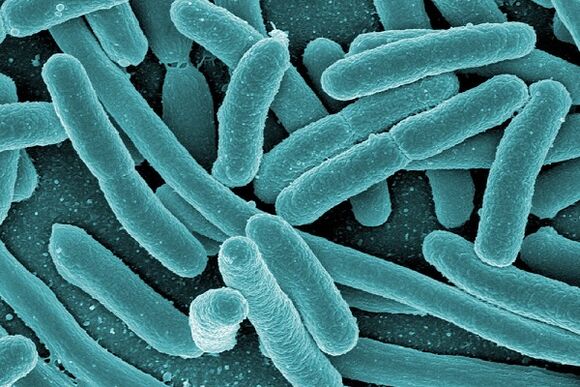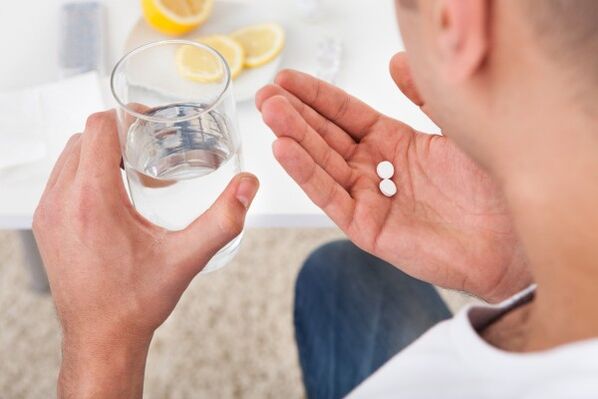In medicine, infection is understood as the infection of organs or tissues by various microorganisms, parasites and some insects. Therefore, infectious prostatitis is inflammation of the prostate caused by bacteria, viruses or fungi.

The first group of microorganisms is more often the culprit. Consider what causes prostate infection, how the disease will behave, and how it can be treated in men.
Causes of infectious prostatitis
A healthy person has a defense mechanism against various foreign organisms-the immune system. If this mechanism fails or produces conditions that are stronger than immunity, the prostate tissue will be infected, leading to an inflammatory process and unpleasant symptoms.
Infectious prostatitis may be caused by:
- Have sex with an infected partner. Even if women do not have obvious symptoms of sexually transmitted diseases, but there are pathogens, men may be infected. Usually, urethritis starts first, and then the infection along the urinary tract enters the prostate and causes prostatitis there.
- The existing infected lesions are in the body. In the case of pneumonia, flu, dental caries and other diseases, pathogens can be carried into the prostate with the bloodstream from other organs.
- Lifestyle characteristics. Alcohol, nicotine, and lack of physical activity weaken the immune system. As a result, bacteria that constantly inhabit human skin and mucous membranes become the culprits of diseases.
- Injuried. During sports, fights or accidents, it will have a mechanical effect on the perineum, resulting in damage to the prostate tissue and possible infectious forms of disease.
- Low temperature. Due to the low ambient temperature and subsequent freezing, the immune system may not be able to deal with bacteria that enter the body.
Certain medical procedures and operations can infect the prostate. For example, prostatitis may be caused by catheterization, which violates all rules and regulations. In this case, urethritis will appear first, and then the complications of prostatitis. In addition, the disease may be a complication of the biopsy.
Sexually transmitted infections are the most dangerous to men's health.

Symptoms of the form of infection
Infectious prostatitis always has an acute course, and the appearance of symptoms is unexpected for the patient, and it will quickly intensify and cause serious concern. It is impossible to ignore the signs of this disease.
The man made the following complaint to the doctor:
- A sharp, beating pain between the anus and the egg. It can be "given" to the genitals, waist or abdomen.
- The body temperature can rise up to 38-39 degrees, fever, and chills. The rectal temperature can rise, and the axillary temperature can be kept within the normal range.
- Frequent and urgent urination, especially at night.
- Pain when urinating, intermittent urine flow, and burning sensation in the urethra.
- Weakness, nausea, loss of appetite, muscle or joint pain.
- Stool disorders-Constipation or pain during bowel movements.
- Loss of libido, slow erection, painful ejaculation.
If a person is not in a hurry to see a doctor and suffers pain or tries to treat himself with antibiotics and folk remedies, then the pain and urinary system diseases will disappear after a period of time. The illusion of recovery appeared. In fact, the infection has not disappeared, and the acute form of prostatitis has developed into a chronic form. This means that men sometimes get worse and are also at risk of infertility.
Infectious prostatitis can cause blood poisoning and death of the patient, so there is no time to waste time trying to deal with the pathology by yourself.
Modern diagnostic methods
The clinical manifestations are very obvious, and the doctor can make a correct diagnosis based on the symptoms listed above. In addition to typical complaints, the medical records received at the reception are also taken into account-so it is very important to contact the medical institution in time.
To choose the right treatment strategy, it is important to have a more accurate understanding of what is happening in the body and the pathogens that cause the pathology. Therefore, this case requires a certain degree of review.
During the appointment, the doctor will perform the following activities:
- It will measure the body temperature of the anus and underarms (for infectious acute prostatitis, the readings can vary up to 0. 5°C).
- Check the condition of the lymph nodes in the pelvic area.
- Palpate the lower abdomen, perineum, and lower back.
Due to the obvious pain, prostate massage for this disease was not performed. In addition, this operation may cause the infection to spread from the glands to other organs and systems, which may later lead to death. Even suspected infectious prostatitis is a contraindication for this type of surgery.
Laboratory tests of blood, urine, and bacterial culture are very important. With their help, you can determine the type of pathogen and confirm inflammation.

From the instrument method, TRUS, CT, MRI, urinary flow meter (to determine the urine outflow rate) and other methods can be used, which is determined by the attending physician. In most cases, transrectal ultrasonography combined with laboratory methods and medical history data is sufficient. If a case is suspected or suspicious, CT or MRI is performed.
Modern treatment principles
If there are no obvious signs of poisoning, treatment can be done at home. Otherwise, hospitalization, intravenous infusion of antibacterial drugs and increased monitoring by medical staff will be required. In both cases, the patient needs to rest in bed-even light physical activity can cause the infection to spread through the bloodstream.
The treatment of patients aims to achieve two goals: combating pathogenic microbial communities and improving overall health. In general, moving in this direction is to prevent death or complications.
Fight infection
If it is determined during the laboratory examination that infectious prostatitis is caused by bacteria (this is the most common condition), the use of antibacterial drugs should be the basis for treatment. If you just start this kind of treatment, your health will improve after 2-3 days. However, for this, the medicine must be selected correctly. The duration of the medication is also important-up to a month, depending on the specific medication and the degree of prostate damage. Treatment cannot be interrupted.
In addition to the type of pathogen, doctors must also consider other factors.
- The individual characteristics of the patient, the state of the heart, liver and kidneys.
- If possible, choose a stronger drug to overshadow this type of bacteriostatic agent.
- The effect of antibacterial treatment should be bactericidal, that is, aimed at eliminating pathogens, rather than preventing their development in prostate tissue.
It is for these reasons that infectious prostatitis cannot be treated alone. Without medical education and the skills to explain diagnostic measures, it is almost impossible to choose the correct antibacterial substance. Delays, like wrong treatment in this case, can cost lives.

Symptomatic treatment
The intensity of pain in infectious prostatitis is so great that standard painkillers and antispasmodics may be useless. In this special case, in order to relieve the pain, the doctor may prescribe anesthetics in a short period of time.
You can also assign:
- Diuretics (if there is no acute urinary retention) are used to prevent cystitis.
- Laxatives (if constipation) to relieve pressure on the prostate.
- Non-steroidal anti-inflammatory drugs.
- Alpha-blockers-normalize the urination process.
- Muscle relaxants can relieve the spasm of the pelvic floor muscles.
If acute urinary retention begins during infectious prostatitis, a catheter can be placed in the patient's body.
If it is obvious that the patient's health status has not improved during treatment, this is the reason for additional TRUS to rule out possible prostate abscess. In case of doubt, a prostate tissue biopsy can also be performed. If the diagnosis is confirmed, the patient will undergo emergency surgery to open and drain the abscess. In this case, antibiotic treatment will not be cancelled.
The harm of infectious prostatitis
If a person seeks medical attention in time and does not violate his prescription, he will almost always recover. In some variants of the event's development, it may become a chronic form or develop chronic pelvic pain syndrome (CPPS).
Other possible consequences:
- Pyelonephritis or cystitis;
- Blood poisoning;
- The formation of fistula.
If started in time, infectious prostatitis responds well to treatment. For this, a person must listen to his health. If the perineal area begins to ache, and the anus temperature rises and urination is difficult, you should seek medical attention immediately. Using folk remedies and following the advice of friends or wives can lead to disasters.

























